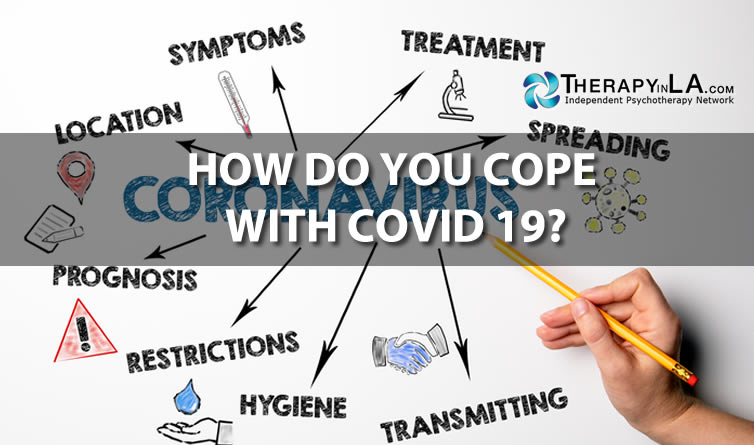HOW DO YOU COPE WITH COVID 19?
HOW DO YOU COPE WITH COVID 19?
How do you usually cope with stress? Do you quickly take action to deal with a challenge, seek relief and resolution? Do you pause, reflect, perhaps check-in with trusted friends, family members, work colleagues, formulate a plan of action and begin to take steps? Do you try some online research to understand the problem more deeply? Do you take time out to de-stress, relax, and distract yourself with physical activity/more intense exercise, TV/movies/social media/online activities? Do you seek quiet and isolation to reduce your stress and gather your resources? Do you sleep more, eat more, drink or use substances or distracting behaviors more? Emotionally, do you tend to get more anxious, sad and depressed, more irritable and angry/reactive, numb, or detached and analytical?
However you are inclined to cope, the stress related to the COVID 19 virus is likely to prompt you to respond your usual ways, but perhaps more so. There’s so much uncertainty right now (mid-March) as sheltering in place takes effect, businesses and schools close, rates of people being infected are increasing, that stress, worry, anxiety, fear is a natural response. All of us may try to cope as we usually do, but more so. And we may add some coping efforts, some of which are less productive.
A few tangible suggestions:
- Find credible sources of information, whether that be newspapers, responsible broadcast journalism, online sources, and more scientific/academic sources. Whatever your politics might be, the Wall Street Journal for example has very thorough reporting that is fact-based and calm. The PBS News Hour reports news with less of the bias in the three major cable networks. Limit your time absorbing “breaking news”, whatever the source, since much of it is not substantiated and designed to garner ratings and higher rates of interest.
- Avoid rumors and especially avoid sharing them with others.
- Help your family members by sharing age-appropriate information, especially for children, in language that communicates effectively. Some children might be quite frightened and need reassurance, as well as accurate information presented in understandable language.
- Maintain your own routines and healthy habits: adequate rest, good nutrition, physical exercise, prescribed medication regimens. Make time to relax, rest, and refresh in ways that are without additional complications.
- Stay in contact with those who provide you with support, affection, and caring, and offer likewise to others in your life. Staying connected in caring relationships is a powerful antidote to stress, isolation, anxiety, and depression.
- Accept help when it is offered, and offer help when you can.
- Keep your children engaged with school assignments when they are not attending school and engage them in constructive activities other than a lot of passive screen time. How about board games, card games, safe physical activities, shared reading time, listening to music, art projects at home?
The Los Angeles County Department of Mental Health has a helpline available 24/7: 800 854-7771 (http://file.lacounty.gov/SDSInter/dmh/1069578_CommunicableDisease-StrategiesforCoping-FinalEnglish.pdf ). The members of the Independent Psychotherapy Network are all very experienced therapists, very skilled in helping people deal with stress, anxiety, and all the responses we have in dealing with a crisis like COVID 19. Feel free to call on one of us.
Alan M. Solomon, Ph.D. is a clinical psychologist in private practice in Torrance, CA. A member of the Independent Psychotherapy Network, he can be reached at 310 539-2772 or dralanms@gmail.com
Copyright 2020 by Alan M. Solomon, Ph.D.

